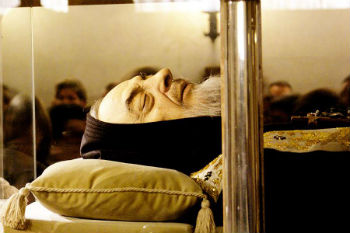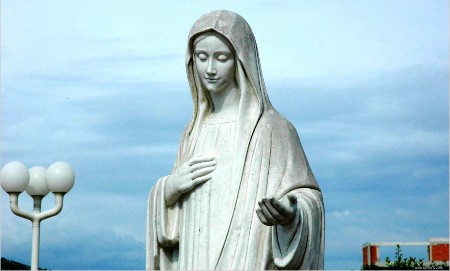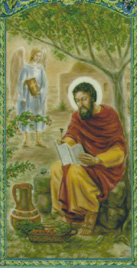Teos
FREE Catholic Classes
Titular see ; suffragan of Ephesus in Asia Minor. A city of Caria situated on a peninsula opposite Sainos, it was an asylum for the Greeks likewise for the Minyæ of Orchomenos; then came colonies from Ionia, Athens and Bæotia and gradually the population became Grecian. This very prosperous city was one of the first attacked by the Persians ; the inhabitants fled into Thrace and founded Abdera, during the reign of Cyrus. Those who remained in Teos allied themselves with the Athenians. Later they revolted, going over to the Spartan rule, but were afterwards reconquered by the Athenians. The walls, recently discovered 3 3/4 miles in circumference, date from this time, as do also the greater part of the monuments which made it one of the most beautiful cities of lonia. Teos was celebrated for its wine and, therefore, for the worship of Bacchus. Here was born the poet Anacreon. Here too was the home of a body of bacchanalian artists who furnished actors for the theatres of Asia and the Archipelago. It was the beginning of the ancient theatre. In order to further commerce and the pursuit of the fine arts, Teos, after having saved the fleet of the Roman prætor Regulus from Antiochus, King of Syria, secured for its territory in 193 B.C. from Rome and a great number of Grecian cities the right of perpetual asylum, this privilege being largely due to the temple of Bacchus. During the Christian era almost nothing is known of this city. It figures in all the "Notitiæ Episcopatuum" as a suffragan of Ephesus but in the fifteenth century no mention is made of it. Teos is believed to have been destroyed by an earthquake. Among its bishops Le Quien (Oriens christianus, I, 727) mentions: Maximus at the Council of Nice ; Gennadius at Chalcedon, 451; finally St. Sisinnius, who is said to have lived about the eleventh century, and whose feast days are 2 February and 14 July, at Torcelli near Venice. To-day Teos is known as Sighadjik, near Sivri-Hissar; it is a nahié of the sanjak of Smyrna ; its ruins have furnished a great many inscriptions.
Join the Movement
When you sign up below, you don't just join an email list - you're joining an entire movement for Free world class Catholic education.
-

-
Mysteries of the Rosary
-
St. Faustina Kowalska
-
Litany of the Blessed Virgin Mary
-
Saint of the Day for Wednesday, Oct 4th, 2023
-
Popular Saints
-
St. Francis of Assisi
-
Bible
-
Female / Women Saints
-
7 Morning Prayers you need to get your day started with God
-
Litany of the Blessed Virgin Mary
Padre Pio overcame suffering with hope, says Italian journalist
-

Bringing Faith to the Big Screen: Brenda Lorena Garcia's Mission in Hollywood
-

The Vatican's Stance on Medjugorje
-
America's Agricultural Shift: How the U.S. Is Becoming a Net Food Importer
-
Pope Francis Encourages Youth to Follow Blessed Carlo Acutis' Devotion to the Eucharist
Daily Catholic
 Daily Readings for Saturday, September 21, 2024
Daily Readings for Saturday, September 21, 2024 St. Matthew: Saint of the Day for Saturday, September 21, 2024
St. Matthew: Saint of the Day for Saturday, September 21, 2024 Nuptial Blessing, Longer: Prayer of the Day for Saturday, September 21, 2024
Nuptial Blessing, Longer: Prayer of the Day for Saturday, September 21, 2024- Daily Readings for Friday, September 20, 2024
- Sts. Andrew Kim Taegon, Paul Chong Hasang, and Companions: Saint of the Day for Friday, September 20, 2024
- In Time of Danger: Prayer of the Day for Friday, September 20, 2024
![]()
Copyright 2024 Catholic Online. All materials contained on this site, whether written, audible or visual are the exclusive property of Catholic Online and are protected under U.S. and International copyright laws, © Copyright 2024 Catholic Online. Any unauthorized use, without prior written consent of Catholic Online is strictly forbidden and prohibited.
Catholic Online is a Project of Your Catholic Voice Foundation, a Not-for-Profit Corporation. Your Catholic Voice Foundation has been granted a recognition of tax exemption under Section 501(c)(3) of the Internal Revenue Code. Federal Tax Identification Number: 81-0596847. Your gift is tax-deductible as allowed by law.






 Daily Readings for Saturday, September 21, 2024
Daily Readings for Saturday, September 21, 2024 St. Matthew: Saint of the Day for Saturday, September 21, 2024
St. Matthew: Saint of the Day for Saturday, September 21, 2024 Nuptial Blessing, Longer: Prayer of the Day for Saturday, September 21, 2024
Nuptial Blessing, Longer: Prayer of the Day for Saturday, September 21, 2024

